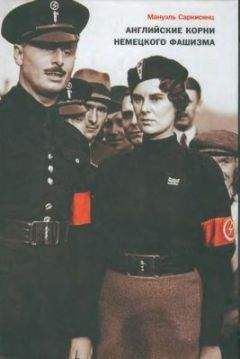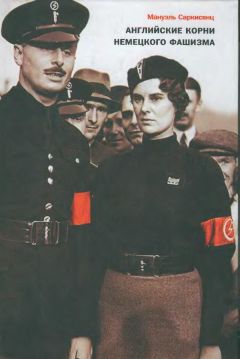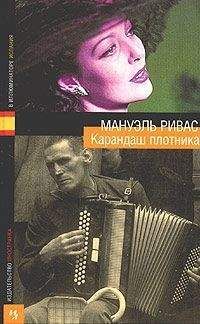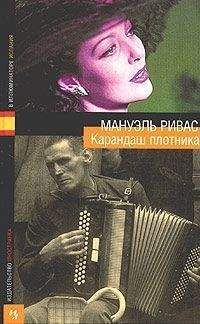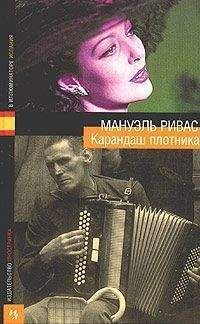Мануэль Саркисянц - Английские корни немецкого фашизма
615
Heinrich Himmler, Geheimrden, S. 44: Rede (vor SS-Fuhrern) vom 8. November 1938; Rudolf Hoss, Kommandant in Auschwitz. Autobiographische Aufzeichnungen von Rudolf Hoss (Stuttgart, 1961), S. 15; Harold Welzer, "Massenmord und Moral", in: M. Dabag und K. Platt (Hrsg.), Genozid und Moderne (Opladen, 1998), S. 270; Alfred Rosenberg, Der Mythus des zwanzigsten Jahrhundert, S. 683.
616
Houghton, p. 118.
617
Ibid., p. 115, quotes: Athenaeum, Nr. 418 of 31. October 1835, p. 817.
618
Houghton, p. 115.
619
James M. Rhodes, The Hitler Movement. A modern millenarian movement (Stanford, 1980), p. 146.
620
Йост Ханс (1890—1978) — нем. драматург и поэт, с 1935 г. — председатель Имперской палаты литераторов, автор пьесы "Шлагетер", в которой появляется цитируемое изречение.
621
Hanns Johst, Schtageter, Schauspiel (Munchen, 1933), S. 26f.
622
Deutscher Kurzwellensender, Berlin (Zeesen) in einer Sendung von 1939.
623
John Ruskin, Works. Edited by E. T. Cook & Ado Waderburn, Vol. V (London, 1902), S. 334.
624
David Newsome, Godliness and good learning (London, 1961), p. 197f.
625
Charles Kingsley, "Great cities and their influence for good and evil": Sanitary and Social Lectures and Essays (1880) = Ch. Kingsley, Works, Ы. XVIII (London, 1961), p. 210— 212.
626
Houghton, p. 121.
627
Don Herzog, Poisoning the Mind of the Lower Orders (Princeton, N.J., USA, 1998), pp. 47, 78, 92f (quoting John Bull of 30. October, 1825, No 5 (44), p. 348), XI, 37, 84 (quoting "A Country Gentleman, Consequences of scientific education to the working classes of the country" (London, 1826), p. 277; Brian Simon, Studies in the history of Education 1780—1870 (London, 1969), p. 134, quoting B. Hammond, The Town Labourer. 1760-1832 (1917), p. 321.
628
G. R. Gleig, A life of Arthur Duke of Wellington (London, 1973), p. 401, quoted by Peter Stanley, White Mutiny. British military culture in India (New York, 1998), p. 21.
629
Don Herzog, p. 79.
630
Brian Simon, Studies in the History of Education, 1780—1870 (London, 1969), p. 132, quoting Davies Giddy from Parliamentary Debates (Hansard), Vol. IX, p. 798:13. July, 1807.
631
Wilhelm Dibelius, England (Leipzig, 1929). Halbband II, S. 145.
632
Peter Stanley, White Mutiny. British military culture in India (New York, 1998), p. 43, quoting William Marshall, Military Miscellany (London, 1846), p. 320.
633
Sophia King Waldorf, or The Dangers of Philosophy (London, 1798), I, pp. 117-127, cited by Don Herzog, Poisoning the Mind of the Lower Orders (Princeton, N.J., USA, 1998), p. 105.
634
Thomas Carlyle, Past and Present (1843), Book III, Chapter v (London, 1897), p. 158.
635
Hitlers Zweites Buch = Institut fur Zeitgeschichte, Quellen und Darstellungen, VII (Stungart, 1961), S. 76; Hermann Rauschning, Gesprache mit Hitler (Zurich, 1940), S. 211.
636
Charles Kingsley, His Letters and Memories of his Life (London, 1877), Ы. I, p. 66-70.
637
Фруд Джеймс Энтони (1818—1894) — англ. историк и публицист, автор "Истории английской Реформации", друг Т. Карлейля.
638
J. A. Froude, Short Studies on great subjects (London, 1888), IV, p. 238.
639
Adolf Hitler, Rede vom 22. August 1939 vor den Oberbefehlshabem: Ernst Klee & Willi Dressen, "Gott mit uns". Deutscher Vernichtungskrieg im Osten (Frankfurt, 1989), S. 12.
640
Кроссмен Ричард Хоувард Стаффорд (1907—1975) — англ. полит. деятель и психолог.
641
R. H. Crossman, Introduction to W. Bagehot, The English Constitution (1974), p. 32; Houghton, p. 110.
642
Houghton, p. 105.
643
Matthew Arnold, "The function of Criticism at the present time" (1864): Essays in Criticism, First Series (London, 1875), p. 18; Matthew Arnold, Philistinism in England and America (Ann Arbor, 1974): Houghton, p. 112f; Marilyn Butler, Romantics, Rebels and Reactionaries. English Literature and its backgrounds 1760—1830 (Oxford, 1981), pp. 55, 165.
644
Wingfield-Stratford, The Squire and his Relations, p. 412; J. Goebbels, Michael. Ein deutsches Schicksal in Tagebuchblattern (Munchen, 1931), S. 76; Wingfield-Stratford, History of English Patriotism, p. XXXII, XXXIII.
645
Cyril Norwood. The English tradition of education (London, 1929), p. 3—7, cited in: Edward Mack, Public Schools and British opinion since 1860 ... The evolution of an English institution (New York, 1941 — reprint 1973), p. 422; Henry S. Salt, Memories of bygone Eton (London, n. d.), p. 210.
646
Mack, p. 370.
647
R. Griffiths, Fellow-Travellers of the Right ... for Nazi Germany (Oxford, 1983), p. 29; На мели / Пер. E. Голышевой // Шоу Б. Поли. собр. соч. Т. 6. Л., 1981. С. 66.
648
Missed footnotetext
649
Carl Peters, Die Grundung von Deutsch-Ostarika. Kolonialpolitische Erinnerungen und Betrachtungen (Berlin, 1906), S. 27, 35.
650
Walter Bagehot, "The character of Sir Robert Peel": Works, III, p. 5, quoted in: Houghton, p. 124.
651
Houghton, p. 128.
652
Edinburgh Review, 1897, p. 355, 360, 368, 371, quoted in: Mack, p. 216.
653
Robert Cecil, The Myth of the Master Race (London, 1972), p. 147.
654
Wilhelm Dibelius, England, Halbband И (Leipzig, 1929), S. 170, 207.
655
Mackmillanfs, Marz 1870, S. 406, quoted in: Mack, p. 138.
656
Mack, p. 124.
657
Чейнинг-Пирс Мелвилл Салтер (1886—?) — колониальный администр., воен. деятель и педагог.
658
Chaning Pearce, Chiron or The education of a citizen (London, 1931), p. 11, 22, 26, 34, 49,59,63,66,72 in: Mack, 406f; Esme Wingfield-Stratford, The Squire and his Relations (London, 1956), pp. 396, 398f.
659
Mack, p. 406f.
660
Ibid., p. 107, 108.
661
Ibid., p. 391, 393.
662
R. Cecil, The Myth of the Master Race, p. 148; M. Foss, England als Erzieher (Berlin, 1921), p. 26; R. Wilkinson, The Prefects. British Leadership (New York, 1964), pp. 38,48.
663
Henry S. Salt, Memories of bygone Eton (London, 1928), p. 213, quotes: Morning Post of 13, July 1923.
664
Mack, p. 463.
665
Francis Selwyn, Hitler's Englishman. The crime of Lord Haw-Haw (London, 1987), p. 23.
666
Oswald Mosley, My Life (as reference 881), p. 28f; H. S. Salt, Memories of bygone Eton, p. 212.
667
Adolf Hitler, Mein Kampf (1933), S. 452.
668
Henry Picker (Hrsg.), Hitlers Tischgesprache im Fuhrerhauptquartier 1941 — 1942 (Stangart, 1953), S. 248, 275 (Ausffihrungen vom 4. April und 12. April 1942).
669
Himmler, Geheimreden, S. 32: Rede vom 8. November 1938.
670
Тейт Джон Уилсон (действ, в 1914—1938).
671
Hannsjoachim Koch, Geschichte der Hitlerjugend (Percha, 1975), S. 271 mit Hinweisauf H. Heuer, "Englische und deutsche Jugenderziehung": Zeitschrift fiir neusprachlichen Unterricht, XXXVI (Berlin, 1937), S. 215ff.
672
H. Koch, Geschichte der Hitlerjugend, S. 272ff.
673
G. StrobI, Germanic Isle, p. 80; Mangan, Game ethics and Imperialism, p. 37, 36.
674
E. K. Milliken, "The new Public Schools in Germany": The Times (London) of 28. September 1935, cited by Harald Scholtz, Nationalsozialistische Ausleseschulen. Internatsschulen als Herrschaftsmittel des Fuhrerstaates (Gottingen, 1973), S. 143. Vgl. Christopher Sidgwick, "German Journey to Backnang" in: Internationale Zeitschrift fur Erziehung (1937), S. 170f; Т. C. Worsley, Barbarians..., pp. 263, 279 with reference to Hansard of 9th March and "Spectator" without specification of dates.
675
Picker, Hitlers Tischgesprache (1965), S. 275; Harald Scholtz, National-sozialistische Ausleseschulen, S. 257.
676
R. Cecil, The Myth of the Master Race, p. 142.
677
J. W. Tate, "The Public Schools of Germany": Internationale Zeitschrift fur Erziehung, VI, (1937), S. 166.
678
Hans Grimm, Englische Rede. Wie ich den Englander sehe (Gutersloh, 1938), S. 27; Heinrich Hartle, Alfred Rosenberg. Grossdeutschland (1970), S. 294.
679
Harald Scholtz, Nationalsozialistische Ausleseschulen, S. 99.
680
Walter Struve, Elites against Democracy. Leadership ideals in bourgeois political thought in Germany 1890-1933 (Princeton, 1973), p. 448ff; J. W. Tate, "The Public Schools of Germany": Internationale Zeitschrift fur Erziehung, VI, (1937), p. 172.
681
Ibid., p. 166.
682
Ibid., p. 167.
683
Ibid., p. 170f.
684
Adolf Hitler, Monologe im Fuhrerhauptquartier 1941 — 1944. Aufzeichnungen Heinrich Helms, Hrsg. von Werner Jochmann (Hamburg, 1980), S. 383: 3. September 1943.
685
Ibid., S. 280: 17. September 1942; S. 91: 17. Oktober 1941.
686
Ibid., S. 213: 18./19. Januar 1942; J. Goebbels, Michael, Ein deutsches Schicksal in Tagebuchblattern (Munchen, 1931), S. 76, 54.
687
Ibid., S. 123: 2. November 1941.
688
Theodor Wilhelm, "Scholars or Soldiers? Aims and results of "Nazi" education": Internationale Zeitschrift fur Erziehung, VIII (vom 5. November 1939), S. 91 mit Hinweis auf John Rogers, Old Public Schools of England (London, 1938), S. 2.
689
Theodor Wilhelm, "Scholars of Soldiers", p. 95.
690
H. John Field, Toward a Programme of Imperial Life. The British Empire at the Turn of the Century (Oxford, n. d.), p. 39; Hans F. K. Gunther, Ritter, Tod und Teufel (Munchen, 1920), S. 96 ("Rucksichtslose Willenstat"), quoted in G. StrobI, Germanic Isle, pp. 41, 42; Theodor Wilhelm, p. 96.
691
Ibid., p. 84.
692
G. A. Rowan-Robinson, "Training of the Nazi leaders of the Future" (Speech in Chattham House, London, on 27. January 1938, chaired by Major В. T. Reynold, M. C, in: International Affairs (March 1938), p. 237, 235, 241.
693
Ibid., S. 241.
694
Harald Scholtz, Nationalsozialistische Ausleseschulen, S. 56, 399; Mackenzie, p. 143 (Jeffrey Richards, "Boy's own empire"), quoting W. H. Auden, in: Graham Greene (Editor), The Old School (Oxford, 1984), p. 9.
695
Scholtz, S. 190; Price Ward, Extra-special Correspondent (London, 1957), p. 201.
696
(As reference 453), S. I47f.
697
R. Cecil, The Myth of the Master Race, p. 152.
698
J. W. Tate, "The Public Schools of Germany", Internationale Zeitschrifi fur Erziehung, VI (1937), S. 168.
699
Scholtz, S. 259; Hermann Rauschning, The Voice of Destruction (New York, 1940), p. 42f; Walter Struve, Elites against Democracy (Princeton, 1973), p. 453.
700
Scholtz, S. 257; Thost, Als Nationalsozialist in England (Munchen, 1939), S. 66.
701
Hermann Rauschning, The bice of Destruction (New York, 1940), p. 42f; Walter Struve, Elites against Democracy. Leadership ideals in bourgeois political thought in Germany 1890-1933 (Princeton, 1973), p. 453.
702
Mack, quoting from Lunn, Loose Ends (1919), pp. 45, 107; Rudyard Kipling, Something of Myself (London, 1937), p. 124; Hermann Rauschning, Gesprache mit Hitler (Zurich, 1940, Europa ferlag), S. 124, 47; Ср.: Раушнинг Г. Говорит Гитлер. Зверь из бездны. М.: МИФ. 1993. С. 49.
703
Ibid., S. 172f; Там же. С. 147.
704
Ibid., S. 47; Там же. С. 49.
705
Ibid., S. 237; Там же. С. 192.
706
Ibid., S. 237; Там же. С. 191.
707
Z. В. Reichsorganisationsleiter, Der Schulungsbrief IX (1942), Heft 3, angefuhrt von Scholtz, S. 190.
